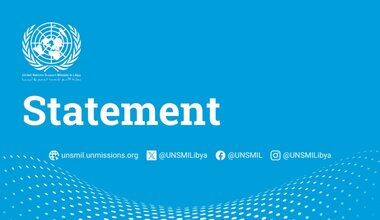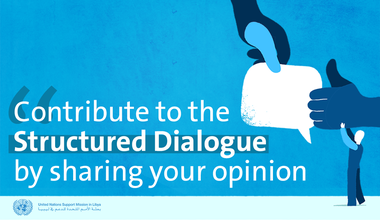School children in Tripoli learn about climate change from the UN in Libya’s Ra’idat youth leaders
TRIPOLI – 2 May – Five teams of young women from the UN in Libya’s Ra’idat youth training programme visited private and international schools in Tripoli this week to raise children’s awareness about climate change and its consequences in Libya.
Working with UNICEF and a local civil society organisation, Lecao volunteers, the women developed lessons explaining the impact on the environment of human activity and worked with the school children to identify ways each person could enact change.
“Climate awareness education is critical for the survival of our planet. I was delighted to hear how engaged boys and girls were in designing awareness raising campaigns and actions for schools to take in recycling, reusing and reducing waste, especially plastic.” said Vanessa Lee, Head of Education at UNICEF Libya.
The children raised their concerns about the health impacts of toxic chemicals from burning plastic, the impact of pollution in the oceans and the need to recycle more and clean up the city.
In a number of the classes visited by the Ra’idat youth leaders, the students and teachers, taking immediate action,agreed to ban disposable plastic bottles and bags, switching to reusable ones.
Working in groups in one school, the children developed awareness campaigns including cleaning the grounds of their school and installing more bins to collect recycling and rubbish.
“Education is not limited to the four walls of the classroom,” said Thikray Salih, a Ra’idat participant from Sebha, adding that education can have the most benefit when it is integrated with the surrounding environment. “I believe that it is necessary to provide a healthy and sustainable school environment that enhances communication and interaction between students and teachers,” said the 27-year-old participant.
The experience was useful because we learned that not everything always goes to plan when working with children,” said Aisha ElKashdi, 27 from Tripoli whose Ra’idat team had to overcome some logistical challenges and manage limited resources. “I enjoyed teaching the children and working with them on their drawings and enjoying their great imaginations,” she said.
“I enjoyed dealing with the students and the activities that we as a team were able to provide,” said Ra’idat’s Amina Sulaiman, 32, from Benghazi, adding that working with the Lecao volunteers was also helpful and she benefited from their experience.
Ra’idat is annual female youth training programme led by UNSMIL and supported by UNDP, UNICEF and UN Women. It trains 30 young women from across Libya each year in communication, leadership and advocacy skills, as well as building their knowledge on human rights, legal rights and elections. The first cohort will graduate next month. Applications to join the next round of the programme will open in July.
 United Nations Peacekeeping
United Nations Peacekeeping UN
UN














